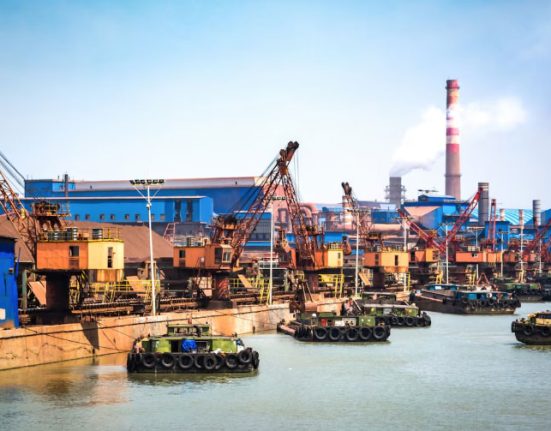When investing in carton packaging machines, evaluating the cost-effectiveness is crucial for ensuring long-term profitability. The cost-effectiveness of these machines is not only about the initial investment price, but also includes factors such as operational efficiency, energy consumption, durability, and maintenance costs. A well-assessed packaging machine can significantly enhance productivity while reducing operational costs in the long run. This article will guide you through the process of evaluating the cost-effectiveness of carton packaging machines by considering various technical and economic factors, offering a comprehensive approach for decision-making.
Understanding the Importance of Cost-Effectiveness in Carton Packaging Machines
The primary goal of any manufacturing process is to maintain a balance between cost and performance. When choosing a carton packaging machine, it’s essential to consider more than just the purchase price. While the initial cost is an obvious factor, other critical aspects such as energy consumption, maintenance requirements, and operational efficiency must also be evaluated. These factors can significantly impact the total cost of ownership (TCO) over the lifespan of the machine, making it necessary to assess both the short-term and long-term costs.
Factors to Consider in Evaluating the Cost-Effectiveness
1. Initial Purchase Cost
The first step in evaluating the cost-effectiveness of a carton packaging machine is to assess its initial purchase price. While it’s tempting to opt for the least expensive machine, it’s important to remember that lower upfront costs may result in higher maintenance and operational costs in the future. Therefore, it’s essential to compare the price of various machines and consider their features, including speed, automation level, and capabilities.
2. Energy Efficiency
Energy consumption is one of the most significant ongoing costs for any manufacturing facility. Packaging machines that consume excessive power can increase your operational costs over time, diminishing the overall cost-effectiveness. Machines with energy-efficient features, such as variable speed drives and low power consumption modes, can help minimize energy use, thereby reducing long-term operational expenses.
3. Maintenance Costs
The frequency and cost of maintaining a carton packaging machine are key factors in evaluating its cost-effectiveness. Machines that require frequent repairs or have high spare parts costs can lead to higher operational costs. A reliable machine with easy-to-access parts and minimal downtime can lower maintenance costs, leading to improved productivity and better cost performance over time.
4. Operational Efficiency
Operational efficiency plays a significant role in determining the overall effectiveness of the packaging machine. This includes factors such as machine speed, automation features, ease of use, and adaptability to different box sizes and shapes. A machine with high operational efficiency will require fewer labor hours and less intervention, translating to lower operational costs. It also ensures that the production process remains smooth, improving overall productivity.
Evaluating Long-Term Costs: Total Cost of Ownership (TCO)
Total cost of ownership (TCO) is a crucial metric in evaluating the cost-effectiveness of any machinery, including carton packaging machines. TCO includes not only the initial purchase price but also factors in installation costs, maintenance, operational expenses, and the machine’s lifespan. A machine with a higher upfront cost might offer greater energy efficiency, fewer maintenance needs, and a longer service life, resulting in lower overall TCO. Conversely, a machine with a lower initial cost might incur higher operational or maintenance costs in the future.
Assessing Durability and Longevity
Durability and longevity are vital considerations when evaluating the cost-effectiveness of a carton packaging machine. Machines built with high-quality materials and advanced technology tend to have longer lifespans and are less prone to breakdowns. A durable machine reduces the frequency of replacement or repair, which directly impacts the long-term cost-efficiency of the equipment.
Moreover, machines with a longer lifespan often retain their performance over the years, contributing to higher efficiency and productivity. In contrast, cheaper machines may show signs of wear and tear sooner, leading to increased repair and replacement costs.
Automation Features and Technological Advancements
The level of automation a carton packaging machine offers is another essential factor to consider. Modern machines come equipped with various automation features that enhance speed, precision, and efficiency. These features can significantly reduce labor costs and improve overall performance. Machines with automated adjustments, for example, can quickly switch between different carton sizes without requiring manual intervention, thus reducing downtime and increasing production flexibility.
Technological advancements such as remote monitoring, smart diagnostics, and integration with warehouse management systems (WMS) can also contribute to cost-effectiveness by ensuring the machine operates at peak efficiency. With these innovations, manufacturers can predict maintenance needs, optimize usage, and minimize errors, ultimately leading to lower operational costs.
Evaluating Production Output and Scalability
Another critical factor in assessing cost-effectiveness is the machine’s ability to meet production demands. Machines with higher production output contribute to improved efficiency and faster turnaround times. However, it’s essential to ensure that the machine can maintain consistent performance even under varying production conditions.
Scalability is another consideration. If your company plans to expand or increase production, selecting a machine that can scale with your needs will save you the cost of upgrading or replacing equipment in the future. A versatile machine that can handle a variety of carton types and sizes will give you more flexibility, ensuring that it remains a valuable asset in the long run.
Evaluating Supplier Support and Warranty Services
The support and warranty services offered by the supplier are also integral to the overall cost-effectiveness of a carton packaging machine. A machine with an extended warranty or service contract can save you money on repairs and maintenance over the years. Additionally, responsive customer support and easy access to spare parts can reduce downtime and keep your production line running smoothly.
Before making a purchase, it’s advisable to evaluate the supplier’s reputation for service and the level of support they provide post-purchase. A reliable supplier who offers excellent after-sales support can be invaluable in ensuring that your machine continues to perform at its best over time.
Evaluating the cost-effectiveness of a carton packaging machine involves more than just looking at the initial purchase price. It requires a comprehensive assessment of various factors, including energy efficiency, maintenance costs, operational efficiency, total cost of ownership, and the machine’s lifespan. By considering these elements and aligning them with your business needs, you can make a more informed decision that ensures long-term profitability and efficiency.
In conclusion, a cost-effective carton packaging machine is one that offers optimal performance, minimal maintenance, and low operating costs, ultimately leading to increased productivity and higher returns on investment. Taking the time to thoroughly evaluate these factors will help you choose a machine that best suits your business’s requirements and goals.















